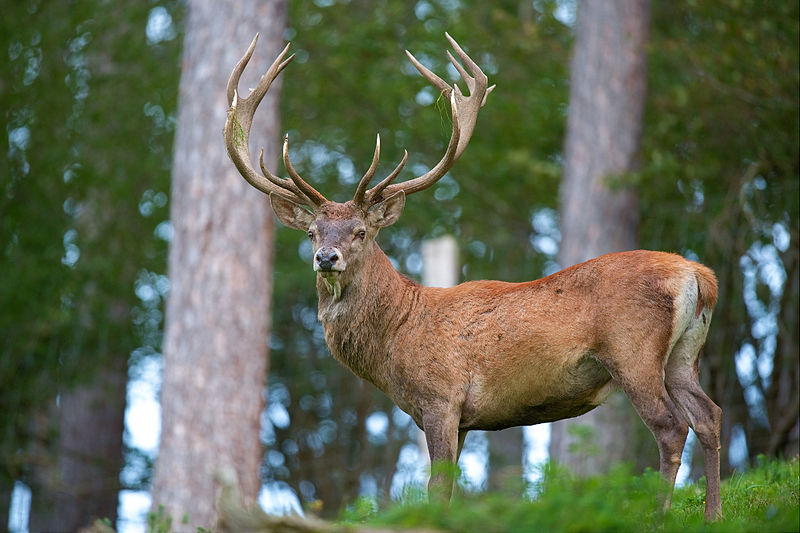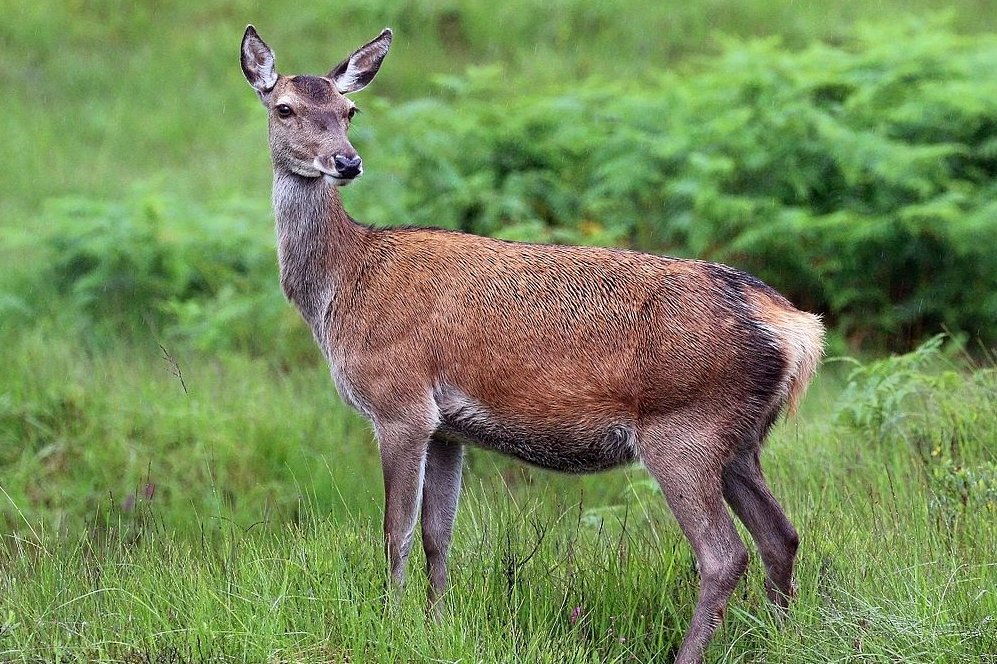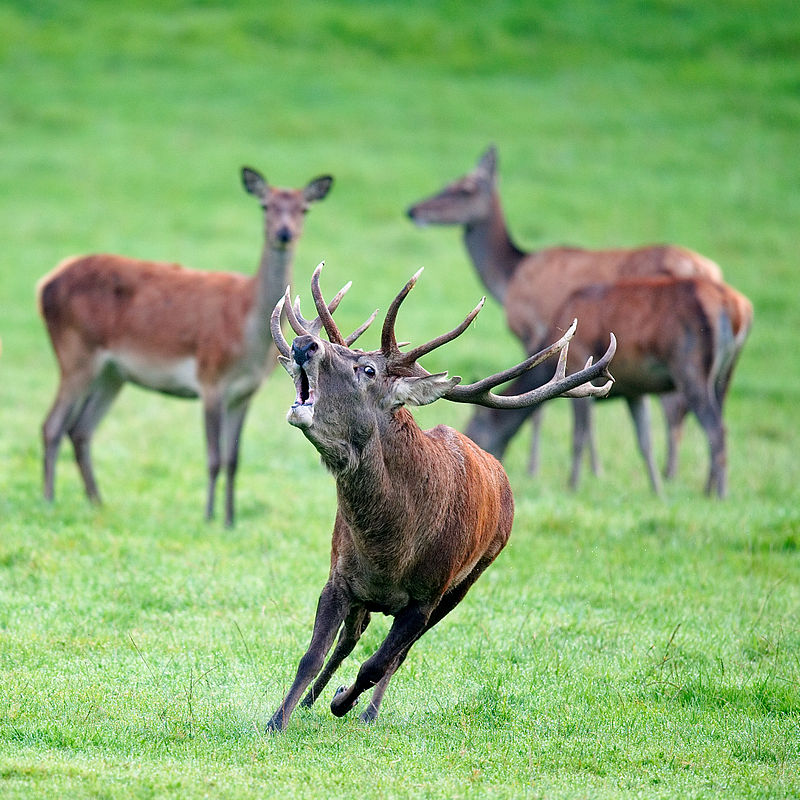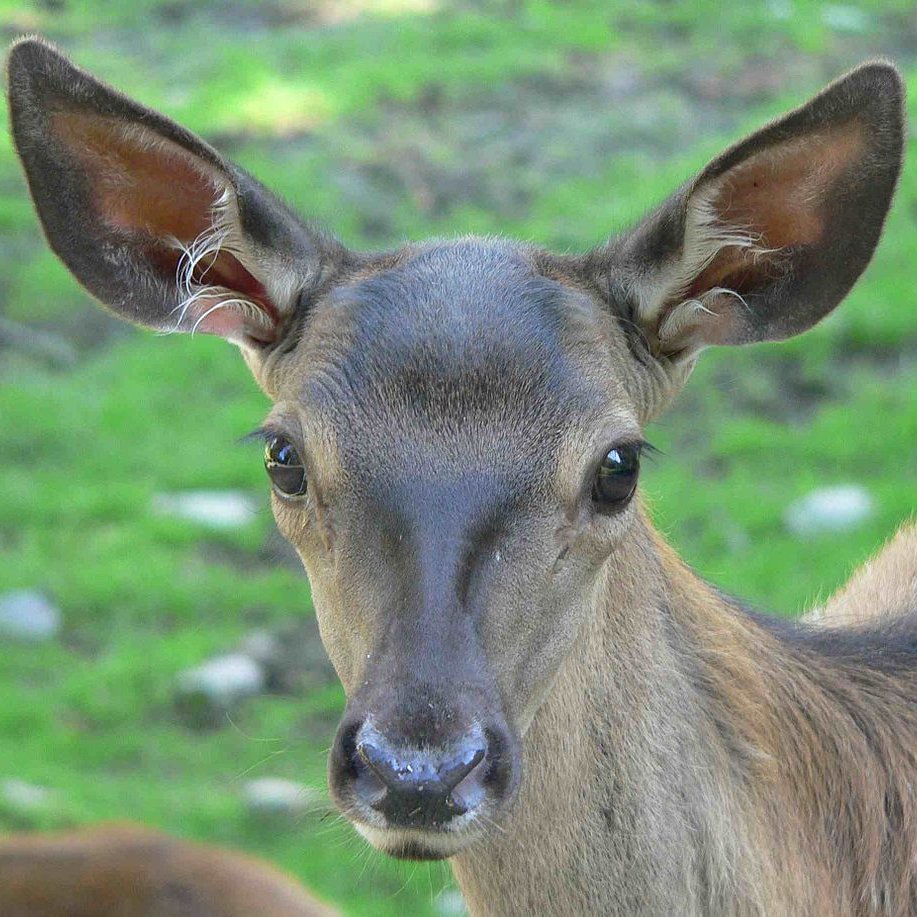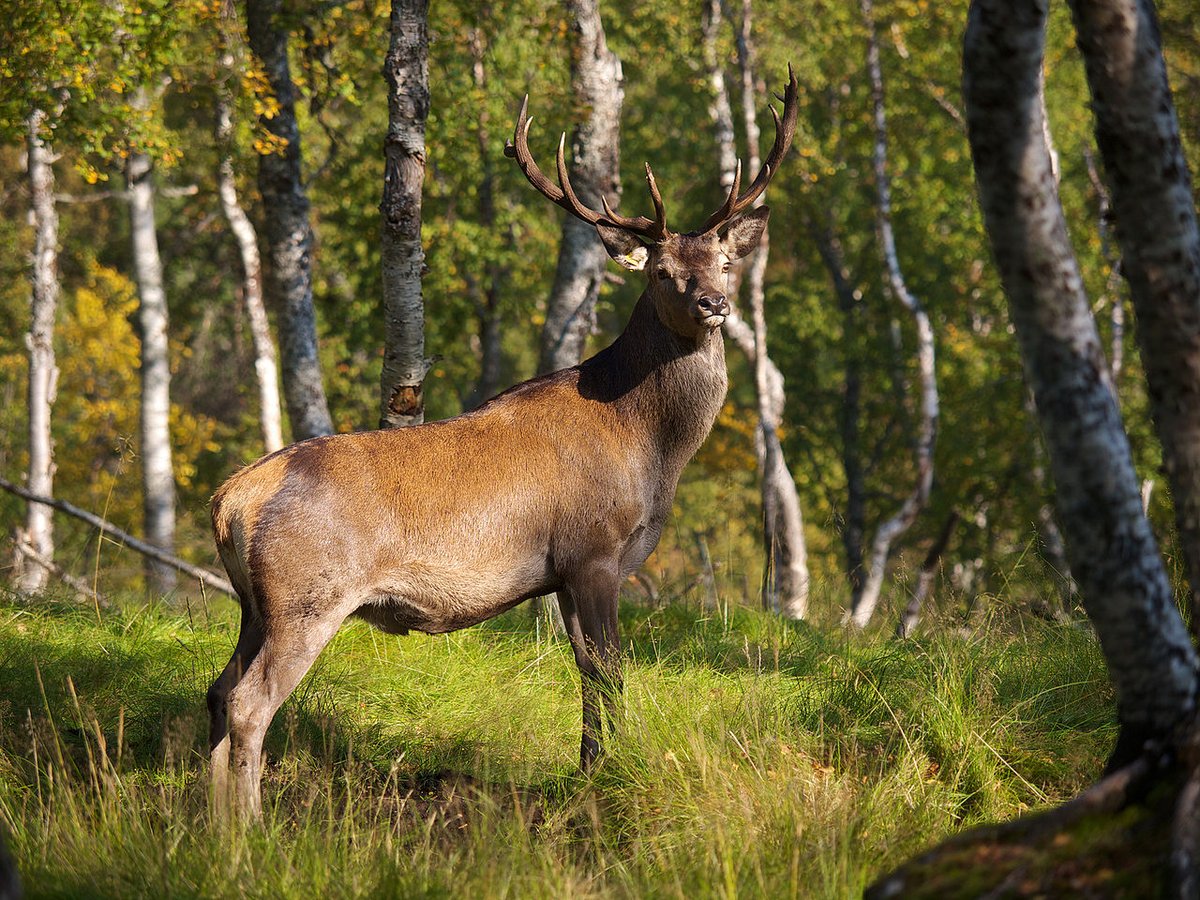#DEER in #IndoEuropean: #Hittite aliya(n)- ‘roebuck’, Gk. ἐλλός (ellós) ‘young deer’, ἔλαφος (élapʰos) m./f. ‘deer’, #Lithuanian élnis ‘stag’, élnė ‘doe’, #Latvian al̂nis ‘moose’, #OldPrussian alne ‘animal’, #OldChurchSlavonic jelenĭ m. ‘deer’, alŭnii f. ‘doe’ , …
1/18
1/18
… #MiddleWelsh elein ‘doe, hind’, #OldIrish elit ‘doe, hind’, #Gaulish Elantia (PN), #Armenian eɫn ‘hind’, #Tocharian A yäl, B yal ‘gazelle’.
These words are usually seen as derivatives of *h₁el- ‘brown’ (cf. OHG elo ‘brownish’), so yet another color-motivated zoonym.
2/18
These words are usually seen as derivatives of *h₁el- ‘brown’ (cf. OHG elo ‘brownish’), so yet another color-motivated zoonym.
2/18
Even though all these forms have the root *h₁el- and a suffix containing *-n- in common, it is difficult to reconstruct a PIE preform that accounts for all formations equally well. A big question in the literature is whether the suffix also contained a laryngeal.
3/18
3/18
A laryngeal is presupposed by the intonation of ‘doe’ in Slavic, PSlav. *òlni < quasi *h₁ol-hₓn-ih₂-. It also accounts well for the vocalism of MWelsh elein, pl. alanet < *alanī (Joseph’s rule) < *elanī < *h₁el-hₓn-ih₂-, though generalization of a laryngeal-less …
4/18
4/18
…oblique stem *h₁el-n̥-i̯eh₂- cannot be ruled out. In view of OIr. elit ‘doe, hind’, Gaul. Elantia, that seem to imply a fem. *elantī < *h₁el-n̥-tih₂-, we might even infer that *elantī was the Proto-Celtic word for ‘doe, hind’ and that Welsh has lost the -t- (whose …
5/18
5/18
…origin in *h₁el-n̥-tih₂- would have been analogical) secondarily and in analogy to other feminines in *-nī like *rīganī ‘queen’ > MW riein. The intonation in PSlav. *òlni, too, might be secondary, based on male/female pairs of animals like …
6/18
6/18
…*vȏrnъ m. ‘raven’ ~ *vòrna f. ‘crow’, in which one possible explanation for the difference in intonation is to assume a masculine base word *u̯orno- and see the feminine *u̯ōrnā- as a vr̥ddhi derivative with a lengthened vowel, rather than to assume the existence of a…
7/18
7/18
…laryngeal (quasi *u̯orhₓnā-). Similarly PSl. *s(v)ȏrkъ m. ‘magpie’ ~ *s(v)òrka f. ‘magpie’. In analogy to cases like these, a pattern of deriving oppositional fem. based on masc. zoonyms by introducing *ō (irrespective of the vocalism of the base) seems to have gained…
8/18
8/18
…some productivity in Balto-Slavic. The word for ‘cow’, for example, PSlav. *kòrva f. < *kōru̯ā (rather than *korhₓu̯ā-) is probably derived from a no longer extant word for ‘bull’ *keru̯o- (cf. Lat. ceruus ‘stag’) or *kr̥u̯o- (cf. MW carw ‘stag’, OPruss. curwis ‘ox’).
9/18
9/18
If we assume that PSlav. *òlni < *ōlnī- was derived from *h₁el-en- (OCS jelenĭ) in analogy to this pattern, this does not only provide a rationale for the o-vocalism (otherwise unexpected in a ‘normal’ oppositional feminine), we also get an explanation for the intonation…
10/18
10/18
…for free without having to invoke the existence of a laryngeal. In fact, the remaining forms can all be explained through a laryngeal-less n-stem PIE *h₁el-en-: In (B)Slav., it was extended by *-(i̯)o- to give PSlav. eleňь, perhaps identical to Lith. dial. elenis ‘deer’.
11/18
11/18
Lith. élnis, álnis, Latv. al̂nis are probably secondarily derived from the fem. Lith. élnė, álnė ‘doe’, OPruss. alne = the Balt. cognate of Slav. *òlni ‘doe’. Gk. ἔλαφος<*h₁el-n̥-bʰo- (cf. Ved. vr̥ṣabhá- ‘manly; bull’<*h₂u̯r̥s-n̥-bʰo- from *h₂u̯r̥s-en->Ved. vŕ̥ṣan-)…
12/18
12/18
…while Gk. ἐλλός<*h₁el-n-ó- (formally comparable to *h₂u̯r̥s-n-ó-> Av. varəšna- ‘male’). The gloss ἔνελος (énelos) ‘fawn’ could stand for metathesized *élenos < *h₁el-en-o-. Arm. eɫn ‘hind’ is ambiguous & can continue the n-stem *h₁el-en- as well as *h₁el-n-o/eh₂-.
13/18
13/18
Tocharian A yäl, B yal has been taken to reflect either *h₁elni- or *h₁el-ōn, the latter of which would only account for TA yäl (then borrowed into TB?). Lastly, Hitt. aliya(n)- is somewhat of a headscratcher. One reconstruction is *h₁ol-ēn- under the premise…
14/18
14/18
…of ‘breaking’ of *-ēn- > Hitt. -iya-, but the validity of this sound rule has recently been questioned. Instead, one could imagine a *-i̯o- derivative based on the same color-root (quasi *h₁ol-i̯o- + subst. *-n-), or (with E. Rieken) see in it a derivative of…
15/18
15/18
…the root *(h₁)al- ‘foreign, wild’, attested also in Luwian alašša/i- ‘wild’ and aliya- ‘wild animal’ (quasi *(h₁)ali̯eh₂-), which under this account would be a semi-cognate of Hitt. aliya(n)- (quasi *(h₁)ali̯o-n-).
16/18
16/18
Random pop-culture reference: Hitt. aliya- is homonymous with #Aaliyah, one of the most talented &influential R’n’B singers of all times, who died in a plane crash aged 22 on August 25, 2001, returning from the video shoot for the single "Rock the Boat".
The deer story comes full circle: in the lyrics to “I’m So Into You”, one of her immortal songs, Aaliyah coined the phrase “My deer, I feel so weak, you knock me off my feet” ;)
18/18
18/18

 Read on Twitter
Read on Twitter